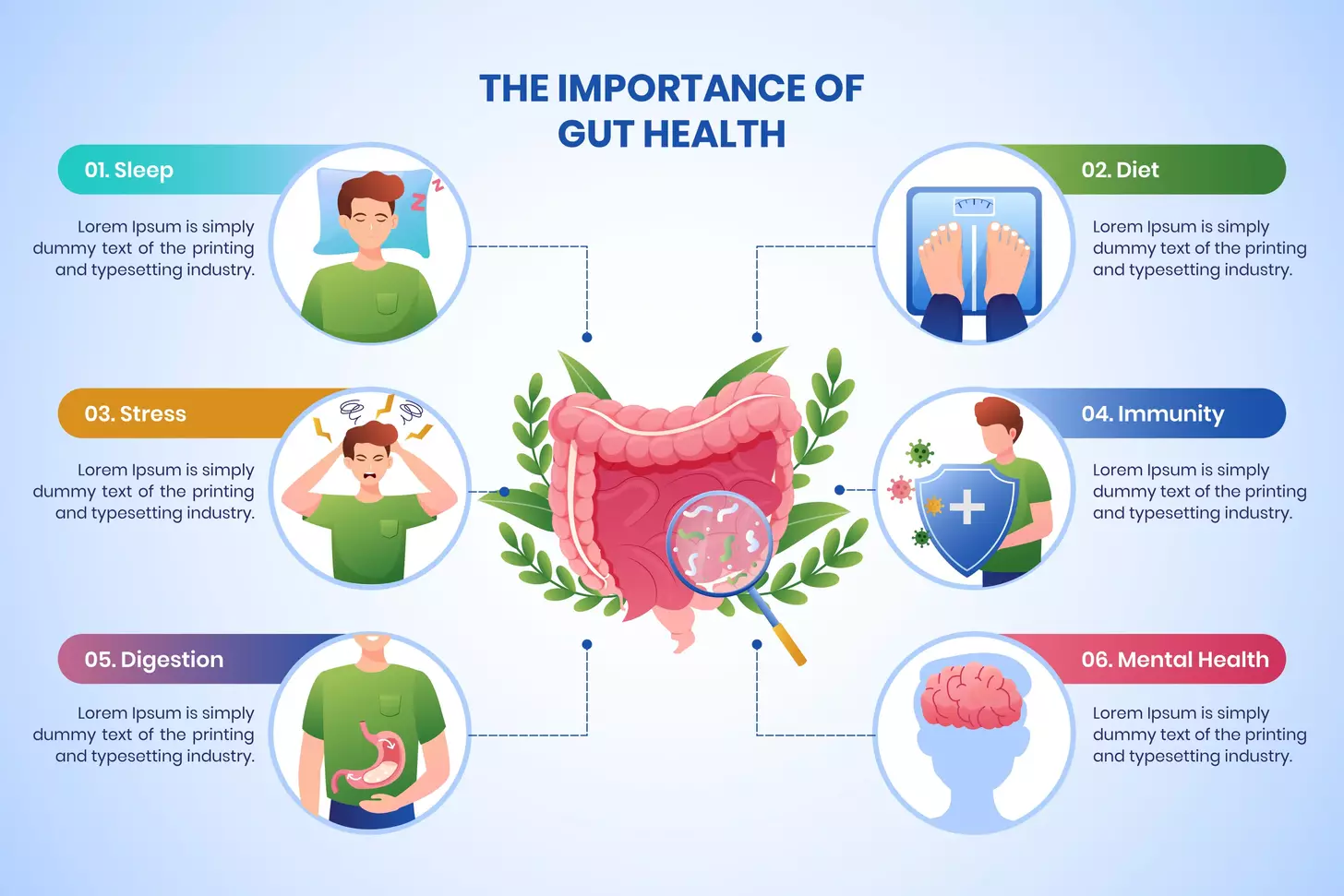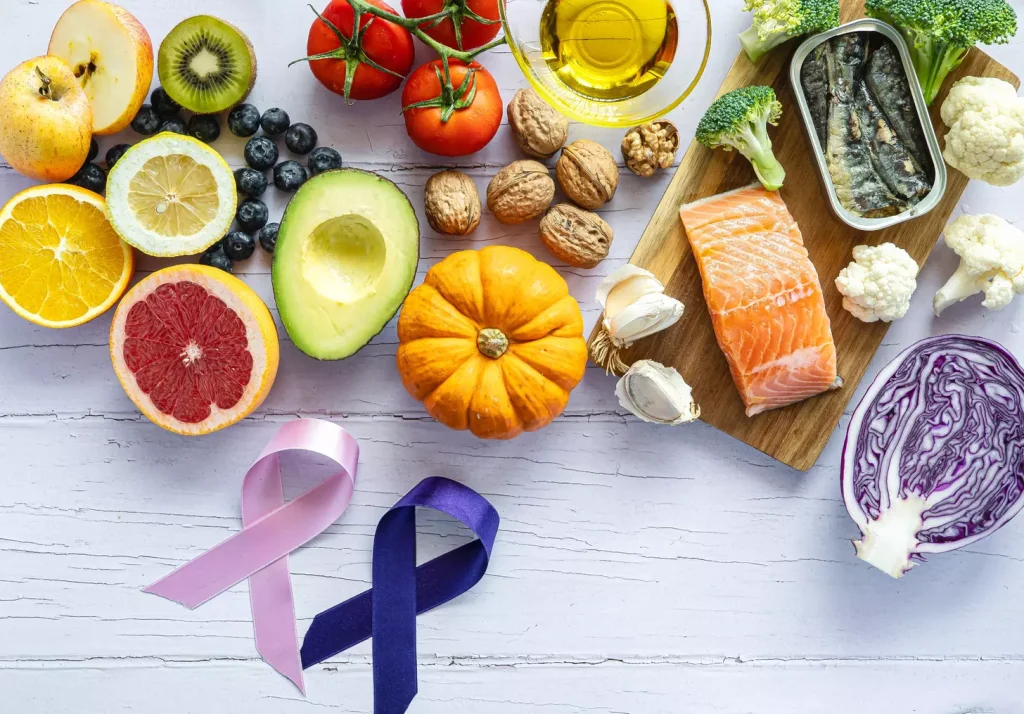
As we dive into colon cancer, we see more interest in holistic approaches to care. Colon cancer is the third most common cancer globally. This makes it vital to find treatments that mix traditional and alternative methods.
At Liv Hospital, we’re combining advanced treatments with natural remedies. We’ve found seven treatments backed by research that can help your healing. These include changing your diet, using herbal remedies, and managing stress. These can work alongside traditional treatments to better your health.
Key Takeaways
- Integrating holistic approaches with conventional colon cancer treatment
- Exploring dietary changes and herbal remedies for colon health
- Stress management techniques for overall well-being
- Research-backed treatments for colon cancer
- Comprehensive care strategies for improved patient outcomes
Understanding Colon Cancer and the Need for Natural Approaches
More people are getting colon cancer, leading them to look for natural treatments. The world is seeing more cases of colorectal cancer. This has made people interested in trying new, natural ways to fight the disease.
The Rising Global Impact of Colorectal Cancer
Colorectal cancer is a big problem worldwide. It affects many people and is getting worse, mainly in poorer countries. This shows we need better ways to treat it, not just the usual methods.
Limitations of Conventional Treatments
Traditional treatments like surgery and chemotherapy can be very hard on the body. They work well but can make life harder for patients. So, many are looking for natural colon cancer cure options to help their treatment.
Side effects of these treatments include:
- Fatigue and weakness
- Nausea and vomiting
- Hair loss
- Diarrhea or constipation
These side effects make it hard for patients. That’s why they’re looking for other ways to feel better.
| Conventional Treatment | Common Side Effects |
|---|---|
| Chemotherapy | Nausea, hair loss, fatigue |
| Radiation Therapy | Skin irritation, fatigue, diarrhea |
| Surgery | Pain, infection risk, bowel changes |
Why Patients Seek Complementary Approaches
People are seeking complementary approaches because traditional treatments have significant downsides. Natural methods, such as dietary changes and herbal remedies, offer a gentler way to heal.
Using natural therapies along with traditional treatments can help patients feel better. It might also lower the chance of cancer coming back.
The Science Behind Colon Cancer Natural Treatment
It’s important to know how natural treatments for colon cancer work. Research is growing on how natural compounds can fight cancer cells. They can make cancer cells die and stop tumors from growing.
How Natural Compounds Target Cancer Cells
Natural compounds can attack cancer cells in different ways. For example, some plant chemicals in fruits and veggies can slow down cancer cell growth. Curcumin, from turmeric, can target cancer stem cells and make colon cancer cells die.
Other natural compounds, like resveratrol in grapes, can also affect cancer cell growth. This shows that natural compounds can boost the effect of regular treatments.
Apoptosis and Anti-Proliferation Mechanisms
Apoptosis, or programmed cell death, is key to how natural compounds fight cancer. They can make cancer cells die, helping to remove them from the body. For example, green tea polyphenols can make colon cancer cells die by turning on proteins that help cells die.
Natural compounds can also stop cancer cells from growing by blocking important cell growth signals. This can slow down tumor growth and lower cancer risk. For more on living with colon cancer, check out Liv Hospital’s guide on colon cancer.
Research Supporting Holistic Approaches
More research backs using holistic treatments for colon cancer. Studies show that mixing natural therapies with regular treatments can help patients more. For example, a study found that certain natural compounds can induce the death of colon cancer cells and prevent tumors from growing.
Understanding the science behind these treatments helps doctors create better plans. These plans meet patients’ physical, emotional, and spiritual needs. As research advances, we’ll see more natural therapies incorporated into cancer care.
Nutritional Therapy: Dietary Changes That Fight Colorectal Cancer
Nutrition plays a big role in treating colorectal cancer. Diet can help with treatment and improve results. This is because some foods can fight cancer.
Anti-Cancer Diet Principles
An anti-cancer diet includes foods that fight tumors and boost health. It focuses on:
- Eating whole, unprocessed foods
- More fruits and vegetables
- Healthy fats and lean proteins
- Less processed and sugary foods
Foods That Inhibit Tumor Growth
Some foods are good at fighting cancer, like in colorectal cancer. These include:
| Food | Potential Anti-Cancer Benefit |
|---|---|
| Cruciferous vegetables (broccoli, cauliflower) | Contain sulforaphane, which may inhibit cancer cell growth |
| Berries (blueberries, raspberries) | Rich in antioxidants that may reduce cancer risk |
| Turmeric | Contains curcumin, which has anti-inflammatory and anti-cancer properties |
Dietary Patterns Associated with Lower Risk
Some diets are linked to lower colorectal cancer risk. These include:
- A Mediterranean-style diet, rich in fruits, vegetables, and healthy fats
- A diet high in fiber, which can help regulate bowel movements and reduce cancer risk
- Avoiding red and processed meats, which have been linked to an increased risk of colorectal cancer
By following these diets, people can lower their cancer risk and stay healthy.
Medicinal Plants and Their Anti-Cancer Compounds
Many medicinal plants have been studied for their anti-cancer properties. They offer new ways to treat colon cancer. These plants have bioactive compounds that can stop cancer cells from growing and make them die.
Grape Extract and Resveratrol
Grape extract, with resveratrol, has been studied a lot for fighting cancer. Resveratrol can slow down colon cancer cells and make them die. It also helps reduce inflammation and oxidative stress, which are linked to cancer.
Green Tea Polyphenols
Green tea polyphenols, like epigallocatechin gallate (EGCG), have shown to fight cancer. These compounds can stop cancer cells from growing and make treatments work better.
Garlic and Organosulfur Compounds
Garlic has organosulfur compounds that fight cancer. These compounds can stop carcinogens from forming and make cancer cells die.
Olive Leaf Extract
Olive leaf extract has oleuropein, which fights cancer. Oleuropein can slow down cancer cell growth and make them die. This could help treat colon cancer naturally.
These medicinal plants and their compounds are promising for treating colon cancer naturally. But, it’s important to talk to a doctor before using them in treatment.
Herbal Remedies for Colon Cancer Treatment
Herbal remedies are gaining attention as complementary treatments for colon cancer. These natural substances may boost the effects of traditional treatments and help patients recover better.
Turmeric and Curcumin
Turmeric, a spice from Indian cuisine, is packed with curcumin. Curcumin fights inflammation and cancer, making it a strong ally in colon cancer treatment. Studies show it can slow down cancer cell growth and trigger cell death in various cancers, including colon cancer.
Curcumin’s benefits include:
- It reduces tumor growth by fighting inflammation.
- It acts as an antioxidant, protecting DNA from damage.
- It may make chemotherapy more effective.
Ginger’s Anti-Inflammatory Properties
Ginger has been used for centuries for its anti-inflammatory effects. Recent studies suggest it could help in cancer treatment, by reducing inflammation linked to tumor growth. Ginger contains compounds like gingerol and shogaol, which lower pro-inflammatory cytokines.
“Ginger extracts have been found to suppress the growth of colon cancer cells and induce apoptosis, suggesting its potential as a complementary therapy.”
Milk Thistle for Liver Support During Treatment
Milk thistle is great for protecting the liver, which is important during colon cancer treatment. Chemotherapy can harm the liver. Silymarin in milk thistle helps protect liver cells and supports liver function.
Milk thistle’s benefits for liver support include:
- It acts as an antioxidant, protecting liver cells.
- It helps regenerate liver tissue.
- It aids in liver detoxification.
Traditional Chinese Herbs with Anti-Tumorigenic Effects
Traditional Chinese Medicine (TCM) has used herbal remedies for centuries, including for cancer. Some TCM herbs, like Astragalus membranaceus and Scutellaria baicalensis, have shown anti-tumorigenic effects. They could be useful in treating colon cancer.
These herbs may:
- Boost the immune system.
- Stop tumor growth and blood vessel formation.
- Improve how the body responds to cancer treatments.
Emerging Natural Compounds in Cancer Research
Recent studies have found new natural compounds that might fight colon cancer. These discoveries are changing how we think about treating cancer. They show promise for new ways to help patients.
Cryptotanshinone from Salvia Miltiorrhiza
Cryptotanshinone comes from Salvia miltiorrhiza. It might stop cancer cells from growing. It could also help kill cancer cells, which is why scientists are studying it closely.
Schisandrin B from Magnolia Berry
Schisandrin B is found in Magnolia berries. It has shown to slow down tumor growth and kill cancer cells. Researchers are looking into its use for treating colon cancer.
Propolis and Bee Products
Propolis is a sticky substance bees make. It’s been used for health for a long time. New studies suggest it might help fight cancer too. We’re looking into how it could be used in cancer treatment.
Mushroom Extracts with Immune-Enhancing Properties
Some mushrooms have extracts that boost the immune system. These could help in fighting cancer. Scientists are studying these compounds to see how they can help.
As we learn more about these natural compounds, we see their possible benefits and challenges. Using them in treatment plans could lead to new ways to fight colon cancer. Our aim is to give patients the latest research and hope in their fight against cancer.
Mind-Body Approaches in Holistic Treatment for Colon Cancer
Mind-body approaches are key in treating colon cancer holistically. They improve patient well-being and outcomes. These methods connect physical and emotional health, supporting patients through treatment.
Stress Management Techniques
Managing stress is essential for colon cancer patients. Deep breathing exercises, progressive muscle relaxation, and yoga help lower stress. They also boost mood and quality of life. These practices fit into daily life, giving patients control and empowerment.
Meditation and Mindfulness Practices
Meditation and mindfulness positively affect colon cancer patients. They reduce anxiety and depression, improve sleep, and aid healing. Regular mindfulness meditation also boosts cognitive function and emotional strength.
- Guided meditation helps patients focus on healing.
- Mindfulness keeps patients in the present, reducing future or past worries.
- These practices can be done alone or with others, fostering community and support.
The Role of Regular Exercise in Recovery
Exercise is vital for colon cancer recovery. It manages side effects, improves function, and lowers recurrence risk. Walking, swimming, or cycling are good, tailored to each person’s health and preferences.
- Exercise cuts down on fatigue, a common treatment side effect.
- It boosts heart health and overall physical condition.
- Regular activity also improves mental health by reducing anxiety and depression.
Emotional Support and Healing
Emotional support is essential in colon cancer care. Support from loved ones, groups, and mental health experts is vital. Counseling and therapy help manage emotional responses to cancer, leading to a better outlook and well-being.
By adding mind-body approaches to treatment, colon cancer patients get a more supportive care environment. This enhances recovery and quality of life.
Supplementation Strategies to Support Colon Cancer Natural Treatment
Exploring colon cancer treatment, supplements are key. They help the body fight cancer and improve health. They also lessen side effects of traditional treatments.
Essential Vitamins and Minerals
Vitamins and minerals boost the body’s defense against cancer. Some nutrients fight cancer and support the immune system during treatment.
- Vitamin D: It may lower colon cancer risk and improve survival chances.
- Vitamin C: This antioxidant protects cells and boosts the immune system.
- Selenium: It acts as an antioxidant, possibly reducing cancer risk.
| Nutrient | Potential Benefits | Food Sources |
|---|---|---|
| Vitamin D | May reduce colon cancer risk and improve survival | Fatty fish, fortified dairy products |
| Vitamin C | Antioxidant properties, immune system support | Citrus fruits, berries, leafy greens |
| Selenium | Antioxidant properties, cancer prevention | Nuts, seafood, whole grains |
Probiotics for Gut Microbiome Balance
The gut microbiome is vital for health. Probiotics keep the gut flora balanced. This balance is key during treatment as it affects the immune system and treatment success.
- Lactobacillus: This probiotic improves gut barrier function and boosts immune response.
- Bifidobacterium: It supports gut health and immune system function.
Omega-3 Fatty Acids and Inflammation Reduction
Omega-3 fatty acids, like EPA and DHA, fight inflammation. This is good during colon cancer treatment. Lowering inflammation can improve treatment results and health.
- EPA and DHA: These omega-3s reduce inflammation and support heart health.
- Food Sources: Fatty fish, flaxseeds, and walnuts are rich in omega-3s.
Adding these supplements to a treatment plan can enhance natural treatment results. It can also improve quality of life.
Integrating Natural Therapies with Conventional Cancer Treatment
Combining conventional cancer treatments with natural therapies needs careful planning. Understanding the role of an integrative oncologist is key. They help create a complete treatment plan.
Working with an Integrative Oncologist
An integrative oncologist is vital in mixing conventional and natural therapies. They know how different treatments work together. This helps patients understand their cancer care better.
Patients get a plan that fits their needs and health. This might include:
- Looking at the good and bad of natural therapies
- Checking how natural and conventional treatments might mix
- Creating a plan that uses the best of both worlds
Potential Interactions to Be Aware Of
Natural therapies can be great, but knowing about interactions is important. Some herbal remedies might affect how well chemotherapy or radiation works.
Some key things to watch out for are:
- Antioxidant supplements might make radiation therapy less effective
- Herbal remedies like St. John’s Wort can change how some chemotherapy works
- Too much vitamin C with certain meds could harm the kidneys
Creating a Complete Treatment Plan
Creating a plan that mixes natural and conventional treatments needs teamwork. Patients, oncologists, and other health experts must work together.
This plan should think about:
- The patient’s health and medical history
- The type and stage of cancer
- The good and bad of different treatments
- The patient’s wishes and values
Monitoring Progress and Adjusting Approaches
It’s important to keep an eye on how treatments are working. Regular check-ups and tests help see if the plan is right.
By working with an integrative oncologist and knowing about interactions, patients can get the most from their treatments. This leads to better health and quality of life.
Conclusion: Embracing a Holistic Approach to Colon Cancer Recovery
A holistic approach to treating colon cancer mixes traditional medicine with natural methods. This way, patients get a more complete care plan. It helps them feel better and recover faster.
Natural treatments like nutrition, herbal remedies, and mind-body therapies are key. They help control symptoms and lessen side effects. This improves a patient’s life quality.
It’s vital to work with doctors to make a treatment plan that fits each person. By using both traditional and natural treatments, patients can help their bodies heal. This approach can lead to better results in fighting colon cancer.
What are the natural treatments available for colon cancer?
Natural treatments for colon cancer include holistic remedies and herbal options. Nutritional therapy and medicinal plants are also used. Mind-body approaches help too. These can improve outcomes when used with conventional therapies.
How can natural compounds help in colon cancer treatment?
Natural compounds target cancer cells and stop them from growing. They can also make cancer cells die. Plants and herbs have been found to have anti-cancer properties.
What dietary changes can help fight colorectal cancer?
Eating fruits, vegetables, and whole grains can slow tumor growth. Foods like cruciferous vegetables, berries, and green tea have anti-cancer effects.
Are there any herbal remedies that can support colon cancer treatment?
Yes, herbs like turmeric, ginger, and milk thistle have anti-inflammatory and anti-cancer effects. They can support recovery when used with conventional treatments.
What is the role of nutritional therapy in colon cancer treatment?
Nutritional therapy gives the body essential nutrients for recovery. A balanced diet can also reduce side effects of treatments.
Can natural therapies be used in conjunction with conventional cancer treatment?
Yes, natural therapies can be used with conventional treatments. But, it’s important to work with an integrative oncologist to avoid interactions.
What are some emerging natural compounds being researched for their anti-cancer effects?
Compounds like cryptotanshinone, schisandrin B, propolis, and mushroom extracts are being studied. They show promise in fighting cancer and boosting the immune system.
How can mind-body approaches support colon cancer treatment?
Mind-body approaches like stress management, meditation, and mindfulness help recovery. Regular exercise and emotional support are also key for healing.
What supplementation strategies can support colon cancer natural treatment?
Supplements like vitamins, minerals, probiotics, and omega-3 fatty acids support natural treatment. They help with treatment side effects and improve health.
How can patients work with healthcare professionals to create a treatment plan?
Patients can work with integrative oncologists to plan treatments. This plan includes both natural and conventional therapies for the best outcomes.
What is holistic treatment for colon cancer?
Holistic treatment for colon cancer uses natural therapies, nutrition, and mind-body approaches with conventional treatments. It’s a complete approach.
Are there any natural colon cancer cures?
There’s no single natural cure for colon cancer. But, natural therapies and conventional treatments together can help recovery and improve outcomes.
How can natural remedies help cure colorectal cancer naturally?
Natural remedies like herbal options, nutrition, and mind-body approaches support healing. They make conventional treatments more effective.
References
- Aiello, P., Sharghi, M., Mansourkhani, S. M., Ardekan, A. P., Jouybari, L., Daraei, N., Peiro, K., Mohamadian, S., Rezaei, M., Heidari, M., Peluso, I., Ghorat, F., Bishayee, A., & Kooti, W. (2019). Medicinal plants in the prevention and treatment of colon cancer. Oxidative Medicine and Cellular Longevity, 2019, 2075614. https://doi.org/10.1155/2019/2075614 PMC
- McCulloch, M., Broffman, M., van der Laan, M., Hubbard, A., Kushi, L., Abrams, D. I., Gao, J., & Colford, J. M. Jr. (2011). Colon cancer survival with herbal medicine and vitamins combined with standard therapy: Ten-year follow-up data. Integrative Cancer Therapies, 10(3), 240-259. https://doi.org/10.1177/1534735411406539 Retrieved from https://pmc.ncbi.nlm.nih.gov/articles/PMC4081504/
- National Cancer Institute. (2025, March 6). Advances in colorectal cancer research. Retrieved from https://www.cancer.gov/types/colorectal/research Cancer.gov
- Natural product shows effectiveness combating colorectal cancer. (n.d.). NCI Frederick. Retrieved from https://ncifrederick.cancer.gov/about/theposter/content/natural-product-shows-effectiveness-combating-colorectal-cancer
- University of Portsmouth. (n.d.). Natural compound promising new alternative treatment for colon cancer. Retrieved from https://www.port.ac.uk/news-events-and-blogs/news/natural-compound-promising-new-alternative-treatment-for-colon-cancer
- Colorectal cancer statistics & research. (2024). National Cancer Institute. Retrieved from https://www.cancer.gov/news-events/cancer-currents-blog/2024/colorectal-cancer-statistics-research











